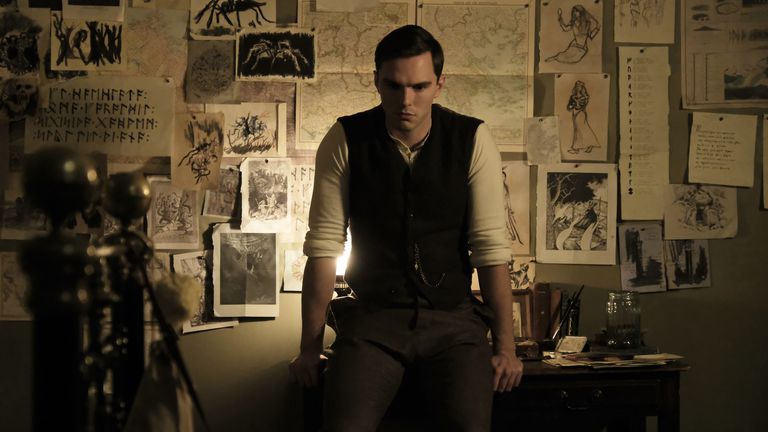
I saw Tolkien last week, and I really enjoyed it. This was surprising to me, because religion was absolutely essential to J. R. R. Tolkien’s life, to his motivations for inventing Middle Earth and all that went with it, and to the themes and characters of all the works he wrote in Middle Earth. Hollywood, on the other hand, is utterly incapable of handling religion seriously. So, how did Tolkien manage to be a good film anyway?
By basically ignoring religion.
Don’t get me wrong. They do mention that he’s Catholic, depict his relationship with the priest who was his caretaker after his mother died, and talk about the tension when Tolkien–a Catholic–wanted to pursue a relationship with Edith, who wasn’t Catholic.
You might think that’s religion, but it’s not, any more than Romeo and Juliet coming from different houses was about religion. His Catholicism is treated as a kind of immutable faction that he was born into and so is stuck with it.
Now, if the movie tried to explain anything deep about Tolkien’s character or his work while omitting religion, it would have failed utterly. It succeeds because–after redacting religion from Tolkien’s life–it also studiously avoids trying to say anything deep about his life or his life’s work.
As far as this film is concerned, all you need to understand how Tolkien’s life led him to create Middle Earth are a series of simplistic and primarily visual references. Tolkien left behind a boyhood home of rolling green hills. That’s the shire. Once, he saw the shadows of bare tree branches on the ceiling of his childhood room at night. That’s ents.
And of course there’s World War I. German flamethrowers attacking a British trench became the balrog. Shattered and broken human corpses mired in a denuded wasteland reduced to mud and water-filled craters became the Dead Marshes. And a kind of generic sense of impending, invisible doom became a dragon and also Sauron’s all-seeing eye.
As for the most famous aspect of Tolkien’s writing–the fact that he invented entire languages–that’s basically written off as a kind of personal obsession. Some people juggle geese. What are you going to do?
None of this is wrong, and that’s why the movie is so enjoyable. It’s fun to see the visual references, even if they are a bit heavy-handed. The rise-from-ashes, boyhood camaraderie and romantic plotlines are all moving. But for the most part the movie avoids all the really deep stuff and just tells a light, superficial story about Tolkien’s circle of friends growing up. And I’m fine with all of that.
Not everything has to go deep, and a movie is far from the best way to investigate what Tolkien meant by “subcreation” or a “secondary world” and all the theology that goes with that, anyway. Even if Hollywood could do religion. Which, seeing as how they can’t, just makes me grateful that in this film they didn’t try. That saves it from ruin and makes it a perfectly fun movie that every fan of J. R. R. Tolkien should see.